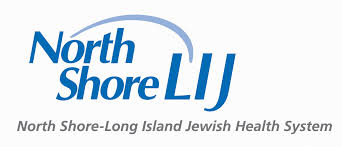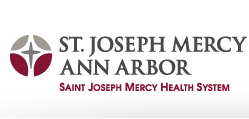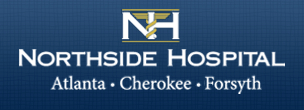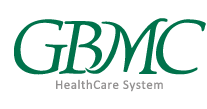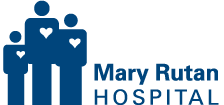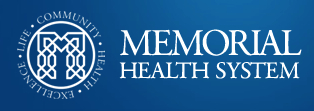Ipilimumab or High-Dose Interferon Alfa-2b in Treating Patients With High-Risk Stage III-IV Melanoma That Has Been Removed by Surgery
| Status: | Active, not recruiting |
|---|---|
| Conditions: | Skin Cancer |
| Therapuetic Areas: | Oncology |
| Healthy: | No |
| Age Range: | 12 - Any |
| Updated: | 4/3/2019 |
| Start Date: | May 25, 2011 |
A Phase III Randomized Study of Adjuvant Ipilimumab Anti-CTLA4 Therapy Versus High-Dose Interferon a-2b for Resected High Risk Melanoma
This randomized phase III trial studies ipilimumab to see how well it works compared to
high-dose interferon alfa-2b in treating patients with high-risk stage III-IV melanoma that
has been removed by surgery. Monoclonal antibodies, such as ipilimumab, may interfere with
the ability of tumor cells to grow and spread. Interferon alfa-2b may interfere with the
growth of tumor cells and slow the growth of melanoma and other cancers. It is not yet known
whether ipilimumab is more effective than interferon alfa-2b in treating patients with
melanoma.
high-dose interferon alfa-2b in treating patients with high-risk stage III-IV melanoma that
has been removed by surgery. Monoclonal antibodies, such as ipilimumab, may interfere with
the ability of tumor cells to grow and spread. Interferon alfa-2b may interfere with the
growth of tumor cells and slow the growth of melanoma and other cancers. It is not yet known
whether ipilimumab is more effective than interferon alfa-2b in treating patients with
melanoma.
PRIMARY OBJECTIVES:
I. To evaluate recurrence-free survival (RFS) between patients randomized to receive
post-operative adjuvant ipilimumab given at either 10 mg/kg (high dose ipilimumab; HIP) or 3
mg/kg (low dose ipilimumab: LIP) versus those randomized to receive high-dose interferon
alfa-2b (HDI) utilizing a hierarchical design assessing HIP versus HDI first and LIP versus
HDI second (if the first comparison is significant).
II. To evaluate overall survival (OS) between patients randomized to receive post-operative
adjuvant ipilimumab given at either 10 mg/kg (HIP) or 3 mg/kg (LIP) versus those randomized
to receive HDI utilizing a hierarchical design assessing HIP versus HDI first and LIP versus
HDI second (if the first comparison is significant).
SECONDARY OBJECTIVES:
I. To evaluate safety and tolerability of post-operative adjuvant ipilimumab therapy given at
either 10 mg/kg (HIP) or 3 mg/kg (LIP).
II. Among patients enrolled by Clinical Community Oncology programs (CCOPs), to compare the
global quality of life (QOL) between the ipilimumab arms versus HDI using Functional
Assessment of Cancer Therapy (FACT)-General (G) form and to evaluate the effect of
treatment-related side effects that may have an impact on the health-related domains of QOL
using Functional Assessment of Chronic Illness Therapy (FACIT)-diarrhea (D) and
FACT-biological response modifiers (BRM).
OUTLINE: Patients age >= 18 are randomized to Arms A, B, or C and patients ages 12-17 are
randomized to Arms D, E, or F.
ARM A: Patients receive induction high-dose ipilimumab intravenously (IV) over 90 minutes on
day 1. Treatment repeats every 21 days for a total of 4 courses in the absence of disease
progression or unacceptable toxicity. Beginning on week 24, patients receive maintenance
high-dose ipilimumab IV over 90 minutes on day 1. Treatment repeats every 90 days for a
maximum of 4 courses in the absence of disease progression or unacceptable toxicity. (closed
accrual as of 4/4/14) (adult accrual has completed to Arms A, B, and C as of 8/15/2014)
ARM B: Patients receive induction high-dose recombinant interferon alfa-2b IV over 20 minutes
on days 1-5, 8-12, 15-19, and 22-26 in the absence of disease progression or unacceptable
toxicity. Patients then receive maintenance high-dose recombinant interferon alfa-2b
subcutaneously (SC) on days 1, 3, and 5. Treatment repeats every week for 48 weeks in the
absence of disease progression or unacceptable toxicity. (adult accrual has completed to Arms
A, B, and C as of 8/15/2014)
ARM C: Patients receive induction low-dose ipilimumab IV over 90 minutes on day 1. Treatment
repeats every 21 days for a total of 4 courses in the absence of disease progression or
unacceptable toxicity. Beginning on week 24, patients receive maintenance low-dose ipilimumab
IV over 90 minutes on day 1. Treatment repeats every 90 days for a maximum of 4 courses in
the absence of disease progression or unacceptable toxicity. (adult accrual has completed to
Arms A, B, and C as of 8/15/2014)
ARM D: Patients receive induction high-dose ipilimumab IV over 90 minutes on day 1. Treatment
repeats every 21 days for a total of 4 courses in the absence of disease progression or
unacceptable toxicity. Beginning on week 24, patients receive maintenance high-dose
ipilimumab IV over 90 minutes on day 1. Treatment repeats every 90 days for a maximum of 4
courses in the absence of disease progression or unacceptable toxicity.
ARM E: Patients receive induction high-dose recombinant interferon alfa-2b IV over 20 minutes
on days 1-5, 8-12, 15-19, and 22-26 in the absence of disease progression or unacceptable
toxicity. Patients then receive maintenance high-dose recombinant interferon alfa-2b SC on
days 1, 3, and 5. Treatment repeats every week for 48 weeks in the absence of disease
progression or unacceptable toxicity
ARM F: Patients receive induction low-dose ipilimumab IV over 90 minutes on day 1. Treatment
repeats every 21 days for a total of 4 courses in the absence of disease progression or
unacceptable toxicity. Beginning on week 24, patients receive maintenance low-dose ipilimumab
IV over 90 minutes on day 1. Treatment repeats every 90 days for a maximum of 4 courses in
the absence of disease progression or unacceptable toxicity.
After completion of study therapy, patients are followed up every 3 months for 2 years, every
6 months for 3 years, and then yearly for up to 15 years.
I. To evaluate recurrence-free survival (RFS) between patients randomized to receive
post-operative adjuvant ipilimumab given at either 10 mg/kg (high dose ipilimumab; HIP) or 3
mg/kg (low dose ipilimumab: LIP) versus those randomized to receive high-dose interferon
alfa-2b (HDI) utilizing a hierarchical design assessing HIP versus HDI first and LIP versus
HDI second (if the first comparison is significant).
II. To evaluate overall survival (OS) between patients randomized to receive post-operative
adjuvant ipilimumab given at either 10 mg/kg (HIP) or 3 mg/kg (LIP) versus those randomized
to receive HDI utilizing a hierarchical design assessing HIP versus HDI first and LIP versus
HDI second (if the first comparison is significant).
SECONDARY OBJECTIVES:
I. To evaluate safety and tolerability of post-operative adjuvant ipilimumab therapy given at
either 10 mg/kg (HIP) or 3 mg/kg (LIP).
II. Among patients enrolled by Clinical Community Oncology programs (CCOPs), to compare the
global quality of life (QOL) between the ipilimumab arms versus HDI using Functional
Assessment of Cancer Therapy (FACT)-General (G) form and to evaluate the effect of
treatment-related side effects that may have an impact on the health-related domains of QOL
using Functional Assessment of Chronic Illness Therapy (FACIT)-diarrhea (D) and
FACT-biological response modifiers (BRM).
OUTLINE: Patients age >= 18 are randomized to Arms A, B, or C and patients ages 12-17 are
randomized to Arms D, E, or F.
ARM A: Patients receive induction high-dose ipilimumab intravenously (IV) over 90 minutes on
day 1. Treatment repeats every 21 days for a total of 4 courses in the absence of disease
progression or unacceptable toxicity. Beginning on week 24, patients receive maintenance
high-dose ipilimumab IV over 90 minutes on day 1. Treatment repeats every 90 days for a
maximum of 4 courses in the absence of disease progression or unacceptable toxicity. (closed
accrual as of 4/4/14) (adult accrual has completed to Arms A, B, and C as of 8/15/2014)
ARM B: Patients receive induction high-dose recombinant interferon alfa-2b IV over 20 minutes
on days 1-5, 8-12, 15-19, and 22-26 in the absence of disease progression or unacceptable
toxicity. Patients then receive maintenance high-dose recombinant interferon alfa-2b
subcutaneously (SC) on days 1, 3, and 5. Treatment repeats every week for 48 weeks in the
absence of disease progression or unacceptable toxicity. (adult accrual has completed to Arms
A, B, and C as of 8/15/2014)
ARM C: Patients receive induction low-dose ipilimumab IV over 90 minutes on day 1. Treatment
repeats every 21 days for a total of 4 courses in the absence of disease progression or
unacceptable toxicity. Beginning on week 24, patients receive maintenance low-dose ipilimumab
IV over 90 minutes on day 1. Treatment repeats every 90 days for a maximum of 4 courses in
the absence of disease progression or unacceptable toxicity. (adult accrual has completed to
Arms A, B, and C as of 8/15/2014)
ARM D: Patients receive induction high-dose ipilimumab IV over 90 minutes on day 1. Treatment
repeats every 21 days for a total of 4 courses in the absence of disease progression or
unacceptable toxicity. Beginning on week 24, patients receive maintenance high-dose
ipilimumab IV over 90 minutes on day 1. Treatment repeats every 90 days for a maximum of 4
courses in the absence of disease progression or unacceptable toxicity.
ARM E: Patients receive induction high-dose recombinant interferon alfa-2b IV over 20 minutes
on days 1-5, 8-12, 15-19, and 22-26 in the absence of disease progression or unacceptable
toxicity. Patients then receive maintenance high-dose recombinant interferon alfa-2b SC on
days 1, 3, and 5. Treatment repeats every week for 48 weeks in the absence of disease
progression or unacceptable toxicity
ARM F: Patients receive induction low-dose ipilimumab IV over 90 minutes on day 1. Treatment
repeats every 21 days for a total of 4 courses in the absence of disease progression or
unacceptable toxicity. Beginning on week 24, patients receive maintenance low-dose ipilimumab
IV over 90 minutes on day 1. Treatment repeats every 90 days for a maximum of 4 courses in
the absence of disease progression or unacceptable toxicity.
After completion of study therapy, patients are followed up every 3 months for 2 years, every
6 months for 3 years, and then yearly for up to 15 years.
Inclusion Criteria:
- All patients must have disease-free status documented by a complete physical
examination and imaging studies within 4 weeks prior to randomization; imaging studies
must include a total body positron emission tomography (PET)-computed tomography (CT)
scan (with or without brain) and brain magnetic resonance imaging (MRI) or CT (if MRI
is contraindicated); if PET-CT cannot be done, CT of neck, chest, abdomen, and pelvis
should be done
- If for some reason a CT cannot be done, an MRI may be done instead; any other
imaging studies if performed (eg, bone scan) must show no evidence of disease
- Patients must have primary cutaneous melanoma that belong to one of the following
American Joint Commission on Cancer (AJCC) stages (2009 AJCC Melanoma Staging System):
- Stage IIIB
- T1-4b N1a M0
- T1-4b N2a M0
- T1-4b N1b M0
- T1-4b N2b M0
- T1-4b N2c M0
- Stage IIIC
- T1-4b N1b M0
- T1-4b N2b M0
- T1-4b N2c M0
- Any T N3 M0
- Stage IV
- M1a
- M1b
- NOTE: patients with stage IV melanoma must have normal lactate dehydrogenase
(LDH) and either distant skin, subcutaneous, lymph node, or lung metastases,
but no other visceral metastases in order to be eligible; for patients with
resected stage IV melanoma, LDH within the institutional upper limit of
normal (ULN) must be documented within 4 weeks prior to randomization
- Patients with disease recurrence after adequate surgical excision of the original
primary cutaneous/unknown primary melanoma are allowed even if they don't fit the
strict staging criteria, but only as follows:
- Recurrence in a regional lymph node basin after a prior complete lymph node
dissection; relapsed disease must be completely surgically resected with free
margins
- Recurrence in the form of in-transit or satellite metastases or distant
skin/subcutaneous, nodal, or lung metastases that are completely surgically
resected with free margins
- Recurrence in a regional lymph node basin; relapsed disease must be completely
surgically resected with free margins
- Patients with unknown primary melanoma (Tx) who present with cutaneous, subcutaneous,
nodal and/or lung metastases that are completely surgically resected with free margins
are allowed; these patients are allowed even if they don't fit the strict staging
criteria; for stage IV patients LDH within the institutional ULN must be documented
within 4 weeks prior to randomization (M1c is not eligible)
- NOTE: all subjects should be classified as IIIB, IIIC, M1a or M1b including
subjects with disease recurrence after adequate surgical excision of the original
primary melanoma; that is the treating team/physician investigator should review
an overall TNM status (that includes primary tumor presentation and disease
recurrence status) and provide a designation of IIIB, IIIC, M1a or M1b
- Patients must be randomized within 84 days (12 weeks) of surgical resection; if more
than one surgical procedure is required to render the patient disease-free, the
patient must be randomized within 12 weeks of the last surgery
- NOTE: patients with clinically positive lymph nodes for melanoma involvement or
those with positive lymph nodes identified through lymphoscintigraphic and/or dye
lymphographic techniques in the groin, axilla, or neck should have additional
lymphadenectomy in those sites; the complete lymph node dissection procedure
would be considered as the last surgery in counting the 84 days unless a
subsequent surgical procedure(s) was clinically required to ensure the disease
free status
- Patients must not have received any adjuvant treatment (chemotherapy, biotherapy, or
limb perfusion) after the resection(s) that make(s) them eligible for this trial
- NOTE: previous radiation therapy, including after the surgical resection, is
allowed as long as 21 days have elapsed between the radiation and initiation of
this adjuvant systemic therapy
- Prior treatment with anti-cytotoxic T-lymphocyte antigen 4 (CTLA4) monoclonal
antibodies or prior CTLA-4 inhibitor or agonist or prior clusters of differentiation
(CD)137 agonist or prior interferon-alfa is not allowed; other forms of prior
treatment for melanoma (e.g., aldesleukin [IL-2], anti-tumor vaccine, chemotherapy)
are allowed if given before the resection(s) that make(s) the patient eligible for
this trial, but these must have been completed at least 4 weeks prior to randomization
- Patients must have Eastern Cooperative Oncology Group (ECOG) performance status of 0-1
- Patients must not have an active infection requiring current treatment with parenteral
antibiotics
- Patients must not have other significant medical, surgical, or psychiatric conditions
or require any medication or treatment that in the opinion of the investigator may
interfere with compliance, make the administration of ipilimumab or HDI hazardous or
obscure the interpretation of adverse events (AEs), such as a condition associated
with frequent diarrhea; patients with a baseline of frequent diarrhea (e.g. irritable
bowel syndrome) are not eligible
- Patients should be carefully screened for depression at baseline and if there are
indications or a history of depression it is strongly recommended that these patients
be closely followed together with behavioral health or psychiatric medical support;
patients with an established diagnosis of depression that, in the assessment of the
investigator may make the administration of interferon (IFN)-alfa or ipilimumab
hazardous, should not be enrolled on this protocol; the risks and benefits of being
treated with standard adjuvant IFN-alfa should be weighed very carefully in
consultation with behavioral health or psychiatry
- Patients must not have a documented history of inflammatory bowel disease (including
ulcerative colitis and Crohn's disease) or diverticulitis (history of diverticulosis
is allowed)
- Patients must not have autoimmune disorders or conditions of immunosuppression that
require current ongoing treatment with systemic corticosteroids (or other systemic
immunosuppressants), including oral steroids (i.e., prednisone, dexamethasone) or
continuous use of topical steroid creams or ointments or ophthalmologic steroids; a
history of occasional (but not continuous) use of steroid inhalers is allowed;
replacement doses of steroids for patients with adrenal insufficiency are allowed;
patients who discontinue use of these classes of medication for at least 2 weeks prior
to randomization are eligible if, in the judgment of the treating physician
investigator, the patient is not likely to require resumption of treatment with these
classes of drugs during the study
- Exclusion from this study also includes patients with a history of symptomatic
autoimmune disease (e.g., rheumatoid arthritis, systemic progressive sclerosis
[scleroderma], systemic lupus erythematosus, Sjögren's syndrome, autoimmune
vasculitis [e.g., Wegener's granulomatosis]); motor neuropathy considered of
autoimmune origin (e.g., Guillain-Barre syndrome and Myasthenia Gravis); other
central nervous system (CNS) autoimmune disease (e.g., poliomyelitis, multiple
sclerosis)
- Patients with autoimmune hypothyroid disease or type I diabetes on replacement
treatment are eligible
- Patients must not have had any infectious disease vaccination (e.g., standard
influenza, H1N1 influenza, pneumococcal, meningococcal, or tetanus toxoid) within 4
weeks prior to randomization
- Patients must not be prisoners or subjects who are compulsorily detained
(involuntarily incarcerated) for treatment of either a psychiatric or physical (e.g.,
infectious) illness
- Patients who have other current malignancies are not eligible; patients with other
malignancies are eligible if they have been continuously disease free for > 5 years
prior to the time of randomization; patients with prior history at any time of any in
situ cancer, lobular carcinoma of the breast in situ, cervical cancer in situ,
atypical melanocytic hyperplasia or melanoma in situ are eligible; patients with prior
history of basal or squamous skin cancer are eligible; patients who have had multiple
primary melanomas are eligible
- Women must not be pregnant or breast-feeding; all females of childbearing potential
must have a blood test or urine study during screening to rule out pregnancy
- NOTE: a woman of childbearing potential (WOCBP) is any woman, regardless of
sexual orientation or whether they have undergone tubal ligation, who meets the
following criteria: 1) has not undergone a hysterectomy or bilateral
oophorectomy; or 2) has not been naturally postmenopausal for at least 24
consecutive months (i.e., has had menses at any time in the preceding 24
consecutive months); post-menopause is defined as:
- Amenorrhea >= 12 consecutive months without another cause, or
- For women with irregular menstrual periods and taking hormone replacement
therapy (HRT), a documented serum follicle stimulating hormone (FSH) level
>= 35 mIU/mL
- WOCBP must be using an adequate method of contraception to avoid pregnancy throughout
the study and for up to 26 weeks after the last dose of ipilimumab or HDI, in such a
manner that the risk of pregnancy is minimized; women who are using oral
contraceptives, other hormonal contraceptives (vaginal products, skin patches, or
implanted or injectable products), or mechanical products such as an intrauterine
device or barrier methods (diaphragm, condoms, spermicides) to prevent pregnancy, or
are practicing abstinence or where their partner is sterile (e.g., vasectomy) should
be considered to be of childbearing potential
- Men of fathering potential and WOCBP must be using an adequate method of
contraception to avoid conception/pregnancy throughout the study and for up to 26
weeks after the last dose of ipilimumab or HDI in such a manner that the risk of
pregnancy is minimized; men or WOCBP who are unwilling or unable to strictly
follow this requirement are not eligible
- WOCBP are not eligible if they satisfy any of the following:
- A positive pregnancy test at baseline
- Pregnant or breastfeeding
- White blood cell (WBC) >= 3,000/uL (obtained within 4 weeks prior to randomization)
- Absolute neutrophil count (ANC) >= 1,500/uL (obtained within 4 weeks prior to
randomization)
- Platelets >= 100 x 10^3/uL (obtained within 4 weeks prior to randomization)
- Hemoglobin >= 10 g/dL (obtained within 4 weeks prior to randomization)
- Serum creatinine =< 1.5 mg/dL (obtained within 4 weeks prior to randomization)
- Aspartate aminotransferase (AST)/alanine aminotransferase (ALT) =< 2.5 x ULN (obtained
within 4 weeks prior to randomization)
- Serum bilirubin =< 1.5 x ULN, (except patients with Gilbert's syndrome, who must have
a total bilirubin less than 3.0 mg/dL) (obtained within 4 weeks prior to
randomization)
- No active or chronic infection with human immunodeficiency virus (HIV), hepatitis B,
or hepatitis C; patients must have negative testing for HIV, hepatitis B virus (HBV),
hepatitis C virus (HCV) within 4 weeks prior to randomization
We found this trial at
946
sites
Rutherford Hospital Founded in 1906 by Drs. Henry Norris and Montgomery H. Biggs, as Rutherford...
Click here to add this to my saved trials
1201 Camino de Salud Northeast
Albuquerque, New Mexico 87131
Albuquerque, New Mexico 87131
(505) 272-4946

Principal Investigator: Montaser Shaheen
Phone: 505-272-6972
University of New Mexico Cancer Center It’s been 40 years since the New Mexico State...
Click here to add this to my saved trials
Harold Alfond Center for Cancer Care MaineGeneral's Harold Alfond Center for Cancer Care (HACCC) is...
Click here to add this to my saved trials
2545 Schoenersville Rd
Bethlehem, Pennsylvania 18017
Bethlehem, Pennsylvania 18017
(484) 884-2200

Principal Investigator: Eliot L. Friedman
Phone: 610-402-2273
Lehigh Valley Hospital - Muhlenberg At Lehigh Valley Health Network, we continually go the extra...
Click here to add this to my saved trials
Tufts Medical Center Tufts Medical Center is an internationally-respected academic medical center – a teaching...
Click here to add this to my saved trials
Brigham and Women's Hosp Boston’s Brigham and Women’s Hospital (BWH) is an international leader in...
Click here to add this to my saved trials
Beth Israel Deaconess Medical Center Beth Israel Deaconess Medical Center (BIDMC) is one of the...
Click here to add this to my saved trials
Click here to add this to my saved trials
1 South Prospect Street
Burlington, Vermont 05401
Burlington, Vermont 05401
802-656-8990
Principal Investigator: Claire F. Verschraegen
Click here to add this to my saved trials
Baylor University Medical Center Baylor University Medical Center in Dallas, TX is ranked nationally in...
Click here to add this to my saved trials
1 Hurley Plaza
Flint, Michigan 48503
Flint, Michigan 48503
(810) 262-9000

Principal Investigator: Philip J. Stella
Phone: 734-712-4673
Hurley Medical Center From its founding in 1908, Hurley Medical Center has devoted itself to...
Click here to add this to my saved trials
Holy Cross Hospital While spirituality plays an essential role in the way that we minister...
Click here to add this to my saved trials
Brooke Army Medical Center Brooke Army Medical Center (BAMC) is the Flagship of Army Medicine!...
Click here to add this to my saved trials
University of Mississippi Medical Center The University of Mississippi Medical Center, located in Jackson, is...
Click here to add this to my saved trials
Click here to add this to my saved trials
200 North Park Street
Kalamazoo, Michigan 49007
Kalamazoo, Michigan 49007
(269) 382-2500
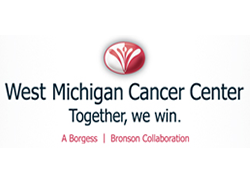
Principal Investigator: Sunil Nagpal
Phone: 269-373-7458
West Michigan Cancer Center In 1994, Borgess Health Alliance and Bronson Healthcare Group opened the...
Click here to add this to my saved trials
1800 West Charleston Boulevard
Las Vegas, Nevada 89102
Las Vegas, Nevada 89102
(702) 383-2000

University Medical Center of Southern Nevada University Medical Center is dedicated to providing the highest...
Click here to add this to my saved trials
529 West Markham Street
Little Rock, Arkansas 72205
Little Rock, Arkansas 72205
(501) 686-7000
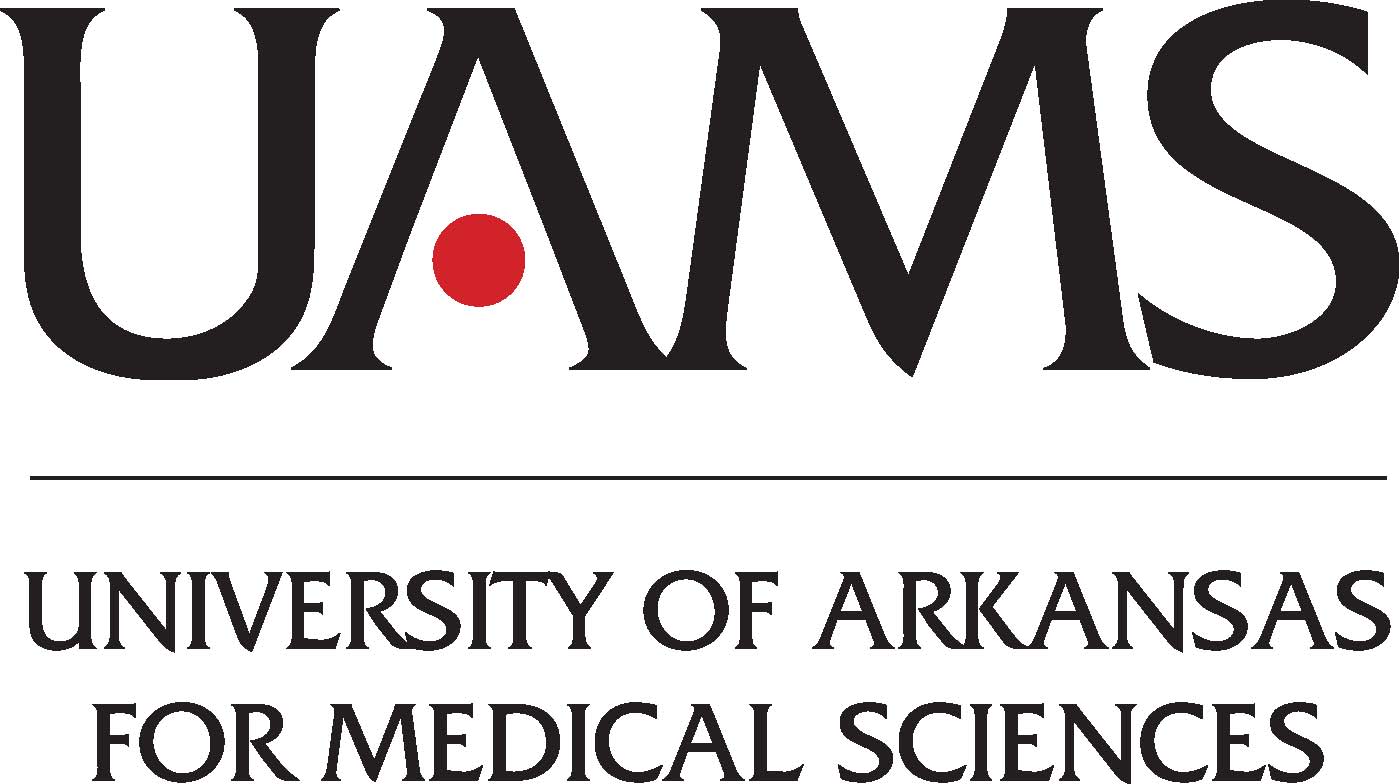
University of Arkansas for Medical Sciences The University of Arkansas for Medical Sciences (UAMS) in...
Click here to add this to my saved trials
Medical Center of Central Georgia Navicent Health is a designated Level I Trauma Center and...
Click here to add this to my saved trials
North Shore University Hospital North Shore-LIJ Health System includes 16 award-winning hospitals and nearly 400...
Click here to add this to my saved trials
4805 Northeast Glisan Street
Portland, Oregon 97213
Portland, Oregon 97213
(503) 215-1111

Providence Portland Medical Center We strive to give those we serve exceptional, compassionate health care...
Click here to add this to my saved trials
3181 Southwest Sam Jackson Park Road
Portland, Oregon 97239
Portland, Oregon 97239
503 494-8311

Principal Investigator: John T. Vetto
Phone: 503-494-1080
Oregon Health and Science University In 1887, the inaugural class of the University of Oregon...
Click here to add this to my saved trials
Rhode Island Hospital Founded in 1863, Rhode Island Hospital in Providence, RI, is a private,...
Click here to add this to my saved trials
401 College Street
Richmond, Virginia 23298
Richmond, Virginia 23298
(804) 828-0450
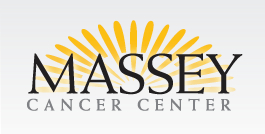
Principal Investigator: Andrew Poklepovic
Phone: 804-628-1939
Virginia Commonwealth University Massey Cancer Center Founded in 1974, VCU Massey Cancer Center is a...
Click here to add this to my saved trials
60 Crittenden Blvd # 70
Rochester, New York 14642
Rochester, New York 14642
(585) 275-2121

Principal Investigator: Paul M. Barr
Phone: 585-275-5830
University of Rochester The University of Rochester is one of the country's top-tier research universities....
Click here to add this to my saved trials
1100 Fairview Avenue North
Seattle, Washington 98109
Seattle, Washington 98109
(206) 667-5000

Fred Hutchinson Cancer Research Center At Fred Hutchinson Cancer Research Center, our interdisciplinary teams of...
Click here to add this to my saved trials
Avera Cancer Institute Avera, the health ministry of the Benedictine and Presentation Sisters, is a...
Click here to add this to my saved trials
601 South Sherman Street
Spokane, Washington 99202
Spokane, Washington 99202
(509) 228-1000

Cancer Care Northwest - Spokane South Cancer Care Northwest is the Inland Northwest’s premier cancer...
Click here to add this to my saved trials
Click here to add this to my saved trials
Click here to add this to my saved trials
Abington Memorial Hospital Abington Memorial Hospital (AMH) is a 665-bed, regional referral center and teaching...
Click here to add this to my saved trials
Click here to add this to my saved trials
Bixby Medical Center ProMedica's Mission is to improve your health and well-being. Which is why,...
Click here to add this to my saved trials
Click here to add this to my saved trials
Click here to add this to my saved trials
Click here to add this to my saved trials
Click here to add this to my saved trials
Click here to add this to my saved trials
Click here to add this to my saved trials
Click here to add this to my saved trials
Click here to add this to my saved trials
Click here to add this to my saved trials
170 North 1100 East
American Fork, Utah 84003
American Fork, Utah 84003
Click here to add this to my saved trials
Click here to add this to my saved trials
Click here to add this to my saved trials
Click here to add this to my saved trials
Click here to add this to my saved trials
Click here to add this to my saved trials
Anchorage, Alaska 99508
Principal Investigator: Keith S. Lanier
Phone: 503-215-6412
Click here to add this to my saved trials
AnMedical Health Cancer Center Cancer is the general term for a group of more than...
Click here to add this to my saved trials
Click here to add this to my saved trials
Saint Joseph Mercy Hospital St. Joseph Mercy Ann Arbor Hospital is a 537-bed teaching hospital...
Click here to add this to my saved trials
1500 East Medical Center Drive
Ann Arbor, Michigan 48109
Ann Arbor, Michigan 48109
800-865-1125

University of Michigan Comprehensive Cancer Center The U-M Comprehensive Cancer Center's mission is the conquest...
Click here to add this to my saved trials
Click here to add this to my saved trials
Click here to add this to my saved trials
Click here to add this to my saved trials
Click here to add this to my saved trials
Click here to add this to my saved trials
Randolph Hospital Since 1932, Randolph Hospital has been fortunate to employ dedicated and loyal personnel...
Click here to add this to my saved trials
Click here to add this to my saved trials
Asheville, North Carolina 28801
Principal Investigator: Christopher H. Chay
Phone: 800-506-2550
Click here to add this to my saved trials
Click here to add this to my saved trials
Click here to add this to my saved trials
Click here to add this to my saved trials
Click here to add this to my saved trials
Click here to add this to my saved trials
Northside Hospital Northside Hospital-Atlanta (in Sandy Springs) opened in 1970. The original facility had 250...
Click here to add this to my saved trials
Click here to add this to my saved trials
Click here to add this to my saved trials
Click here to add this to my saved trials
Click here to add this to my saved trials
Click here to add this to my saved trials
Augusta, Georgia 30912
Principal Investigator: Sharad A. Ghamande
Phone: 706-721-1663
Click here to add this to my saved trials
Click here to add this to my saved trials
Medical Center of Aurora At The Medical Center of Aurora and Centennial Medical Plaza patients...
Click here to add this to my saved trials
University of Colorado Hospital, Site Top medical professionals, superior medicine and progressive change make University...
Click here to add this to my saved trials
Rush - Copley Medical Center Rush-Copley is proud to be the leading provider of health...
Click here to add this to my saved trials
Click here to add this to my saved trials
Click here to add this to my saved trials
Greater Baltimore Medical Center The 255-bed medical center (acute and sub-acute care) is located on...
Click here to add this to my saved trials
2401 W Belvedere Ave
Baltimore, Maryland 21215
Baltimore, Maryland 21215
(410) 601-9000
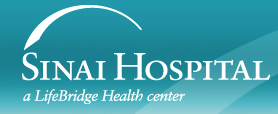
Principal Investigator: Mukund S. Didolkar
Phone: 410-601-6120
Sinai Hospital of Baltimore Sinai Hospital of Baltimore provides a broad array of high-quality, cost-effective...
Click here to add this to my saved trials
489 State St
Bangor, Maine 04401
Bangor, Maine 04401
(207) 973-7000
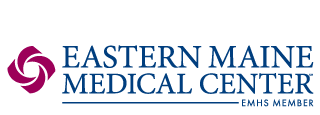
Principal Investigator: Thomas H. Openshaw
Phone: 800-987-3005
Eastern Maine Medical Center Located in Bangor, Eastern Maine Medical Center (EMMC) serves communities throughout...
Click here to add this to my saved trials
Summa Barberton Hospital Summa Barberton Hospital is a full member of Summa Health System and...
Click here to add this to my saved trials
Click here to add this to my saved trials
Click here to add this to my saved trials
Bronson Battle Creek As a proud member of the Battle Creek community, we believe everyone...
Click here to add this to my saved trials
Click here to add this to my saved trials
Click here to add this to my saved trials
Mary Rutan Hospital The hospital was endowed by the sale of a farm in Ridgeway...
Click here to add this to my saved trials
Click here to add this to my saved trials
Click here to add this to my saved trials
Strecker Cancer Center-Belpre The Memorial Health System's Strecker Cancer Center, Belpre combines the clinical expertise...
Click here to add this to my saved trials
Click here to add this to my saved trials
Click here to add this to my saved trials
Click here to add this to my saved trials
Click here to add this to my saved trials
Click here to add this to my saved trials
Click here to add this to my saved trials
Click here to add this to my saved trials
Click here to add this to my saved trials
Click here to add this to my saved trials










